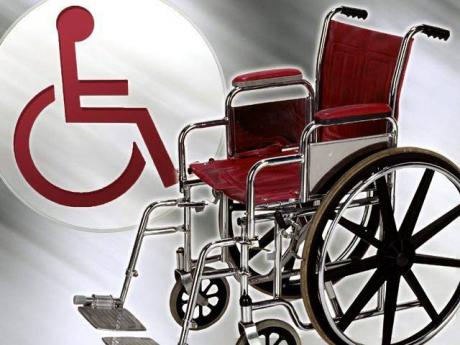Adoption agony for disabled kids
Children with disabilities are less likely to be adopted or fostered than able-bodied kids, but 70-year-old Inez Jones could not turn her back on her now 20-year-old intellectually challenged grandson after his father died when he was just two years old.
The senior citizen went through the process of formally fostering him and has since assumed responsibility for his daily care. Because of the 20-year-old’s development challenges, his needs are great.
“He didn’t walk until he was about four years old,” she explained.
“Sometimes I have to help bathe him, like get him to soap up himself properly,” said Jones, who resides in St James.
Data provided by the Child Protection and Family Services Agency (CPFSA) show that 137 disabled children within its purview currently live in western Jamaica. Each year, they are overlooked by scores of prospective parents seeking a child to adopt. Last year, for example, no child with disability was adopted while two were fostered by relatives in the west.
“It is more difficult for a child with disability to be fostered because of the individualised care that would be required. Most of our foster applicants do not have at their disposal the amount of time, financial resources, familial support, and commitment needed to properly care for children with disabilities,” Rochelle Dixon, public relations and communications manager at the CPFSA, told The Gleaner.
“Most foster parents want so-called normal children. If the disability is mild, then the prospects are better for family-based placements,” Dixon said.
A SOCIAL CRISIS
This social crisis is one of the issues atop the agenda for International Day of People with Disabilities, which will be commemorated on Thursday, December 3.
Angeline Reid-Williams decided to foster her now seven-year-old niece when she was nine months. At the time, her disability was not as pronounced, but over time, Reid-Williams started noticing that her speech was delayed. The child was also not using the potty.
Reid-Williams’ foster child is yet to start school formally. Plans to have her begin school this year have been delayed by the COVID-19 pandemic. Being a mother to five biological children, it gets tough financially, but the foster mother didn’t want to turn her back on her niece.
“Things get slow, but you know, I just take my time and go and give God thanks,” she said.
Apart from the financial challenges, Jones said her grandson has been the victim of verbal and physical abuse by his peers, who at times try to take advantage of him.
In assessing the issue of exclusion, discrimination, and stigma, researchers who conducted a situational analysis of persons with disabilities in Jamaica in 2018 received numerous accounts of financial challenges, discrimination, and abuse, especially of children with severe disabilities.
MORE VULNERABLE TO ABUSE
Executive director of the Combined Disabilities Association, Gloria Goffe, finds that children with disabilities are more vulnerable to abuse because they are sometimes viewed by their parents as stumbling blocks.
“Sometimes relationships break up because of having a child with a disability, and sometimes the partner blames the child for that, and sometimes when they can’t find the money to spend, because they have to pay for a therapist, they have to take the child to school themselves because they are tired,” she said. “It’s like it is the child’s fault.”
In remote rural communities, disabilities are often considered a curse, with cultural assumptions that the child is paying for the sins of a parent.
“We have heard it in communities where the reason the child comes out with a disability is because maybe the mother cheated on somebody and this is God’s way of getting back,” said executive director of the Jamaica Association for the Deaf, Kimberley Sherlock Marriott-Blake.
Having a deaf child is sometimes believed to be punishment for a parent hearing what they shouldn’t have or because of witchcraft.
A UNICEF study in 2006 found that several myths, superstitions, and beliefs still exist in Jamaica, exacerbating social exclusion of children with disabilities.
Researchers found that 18 per cent of parents felt that a disability was due to an evil spirit, punishment for a sin, or looking at someone who is disabled during pregnancy.

